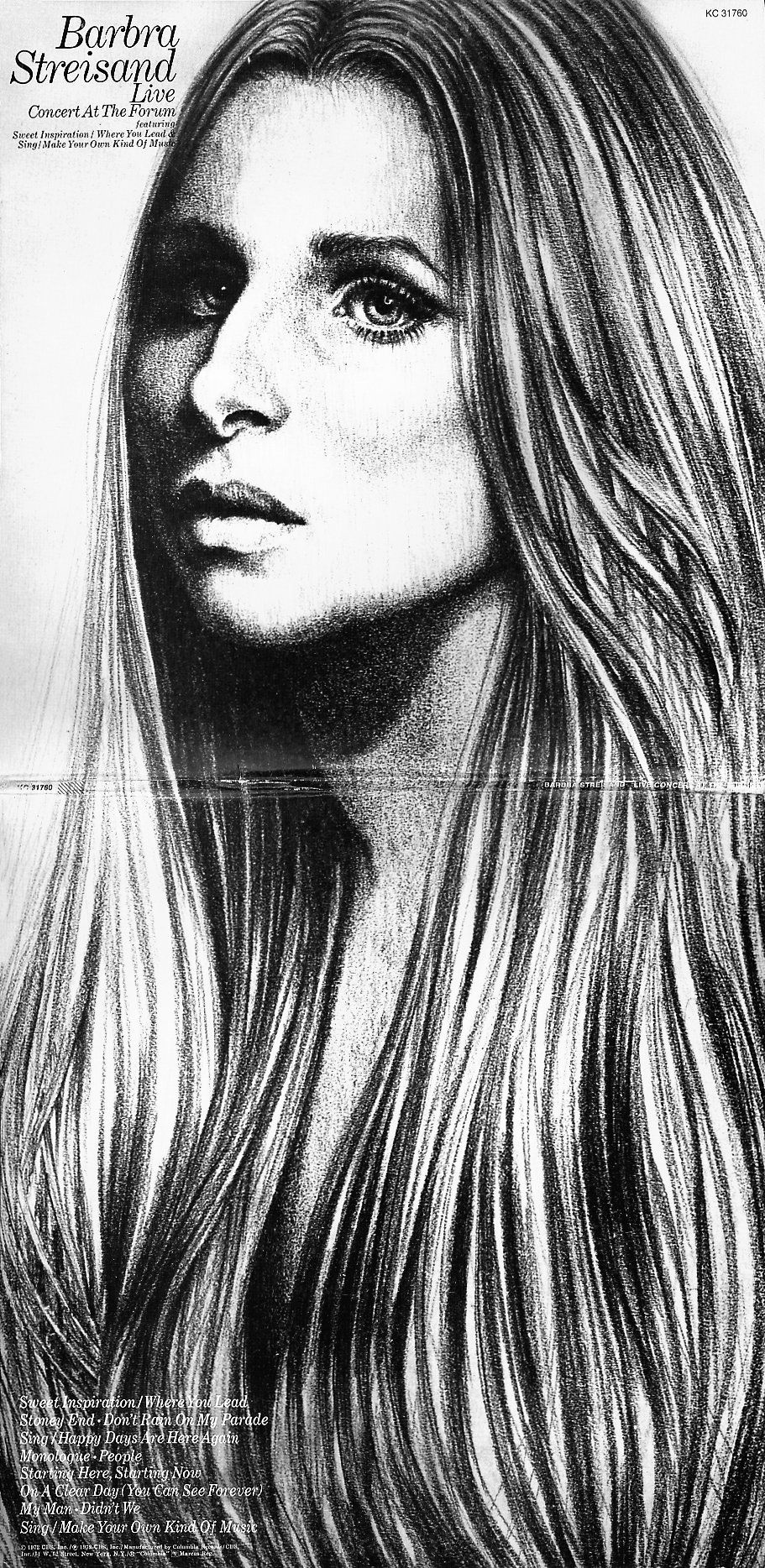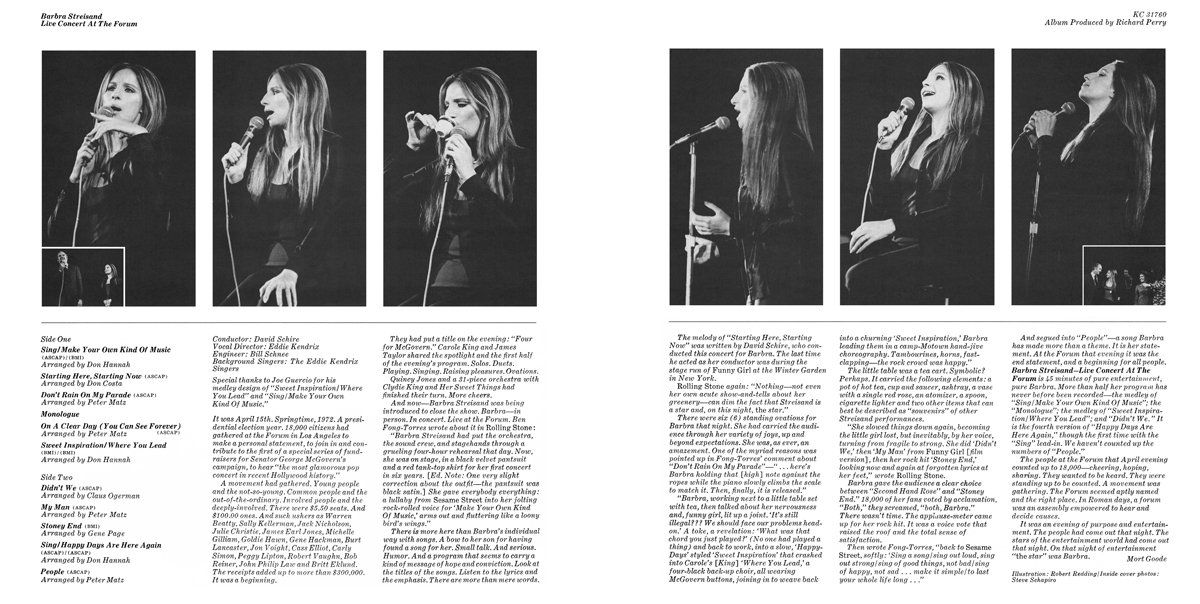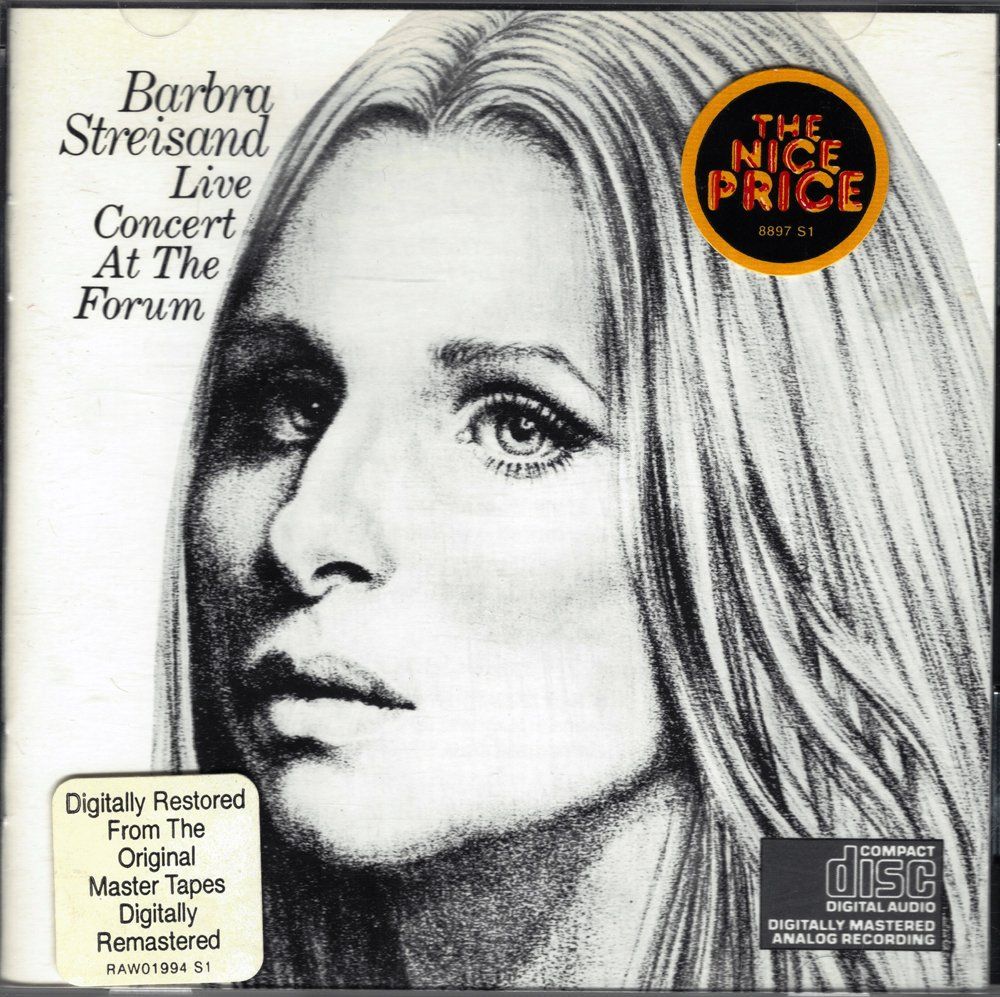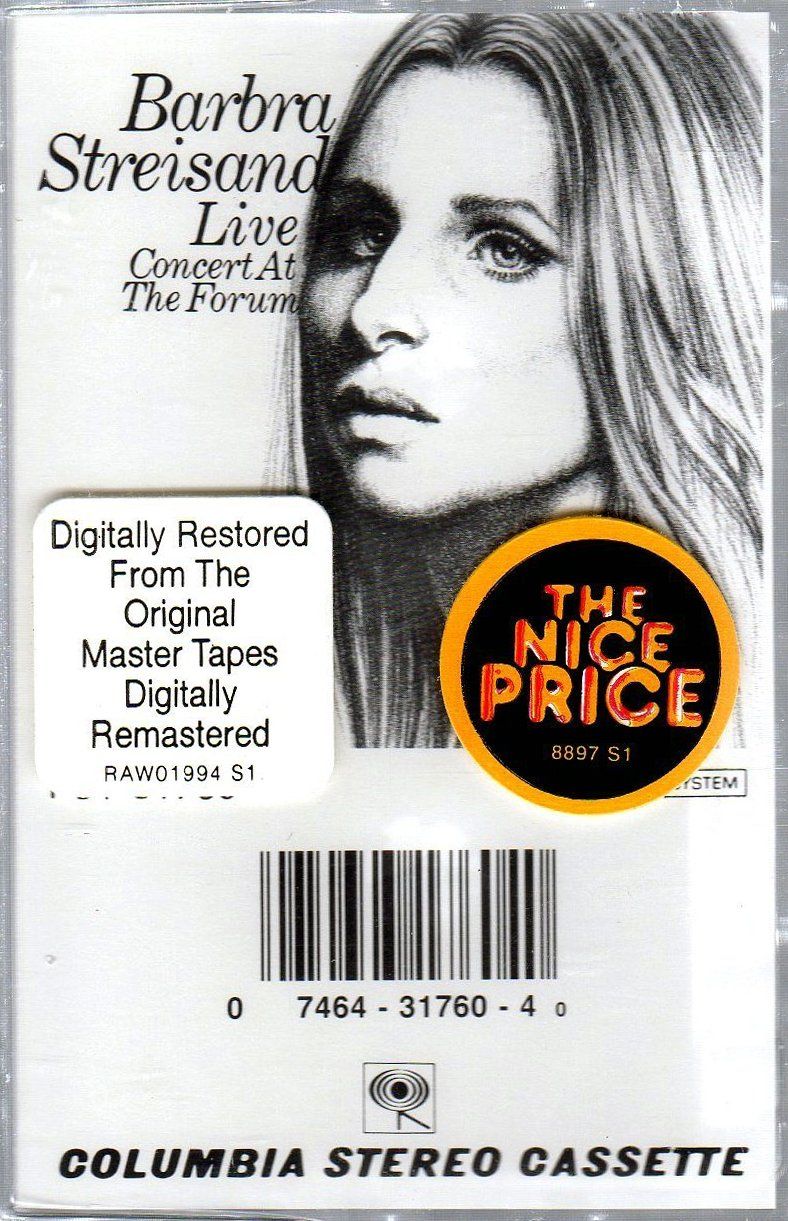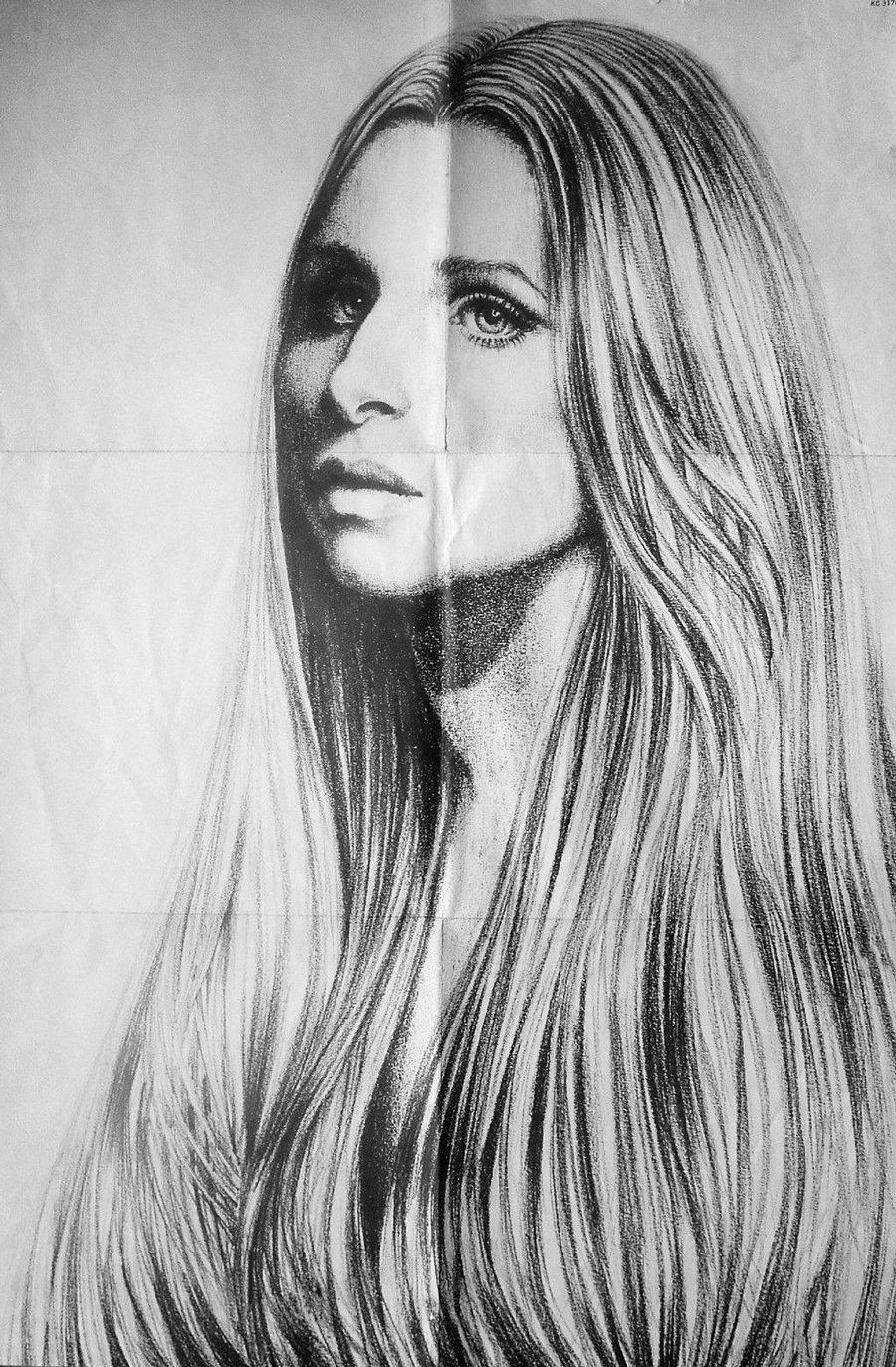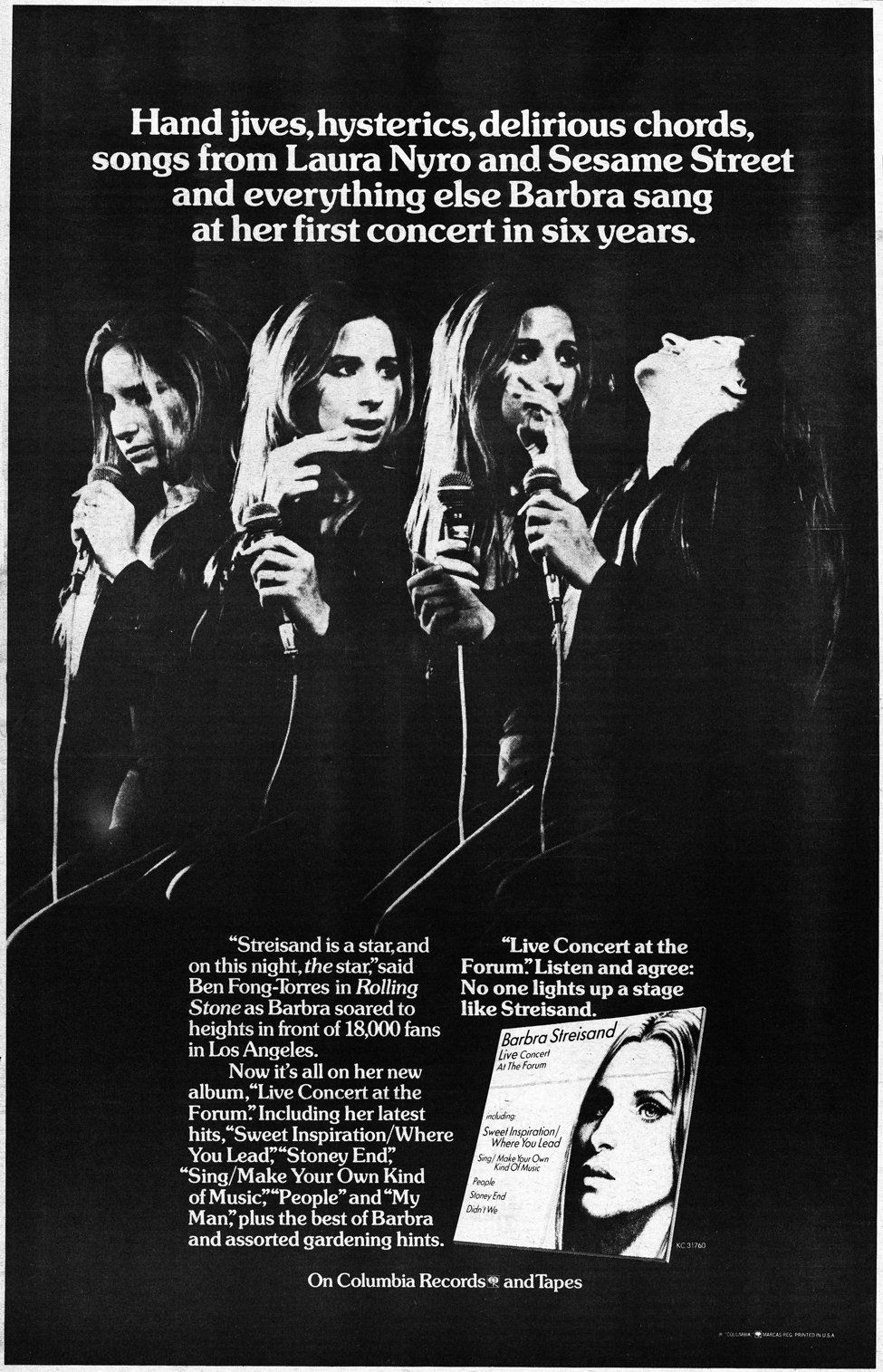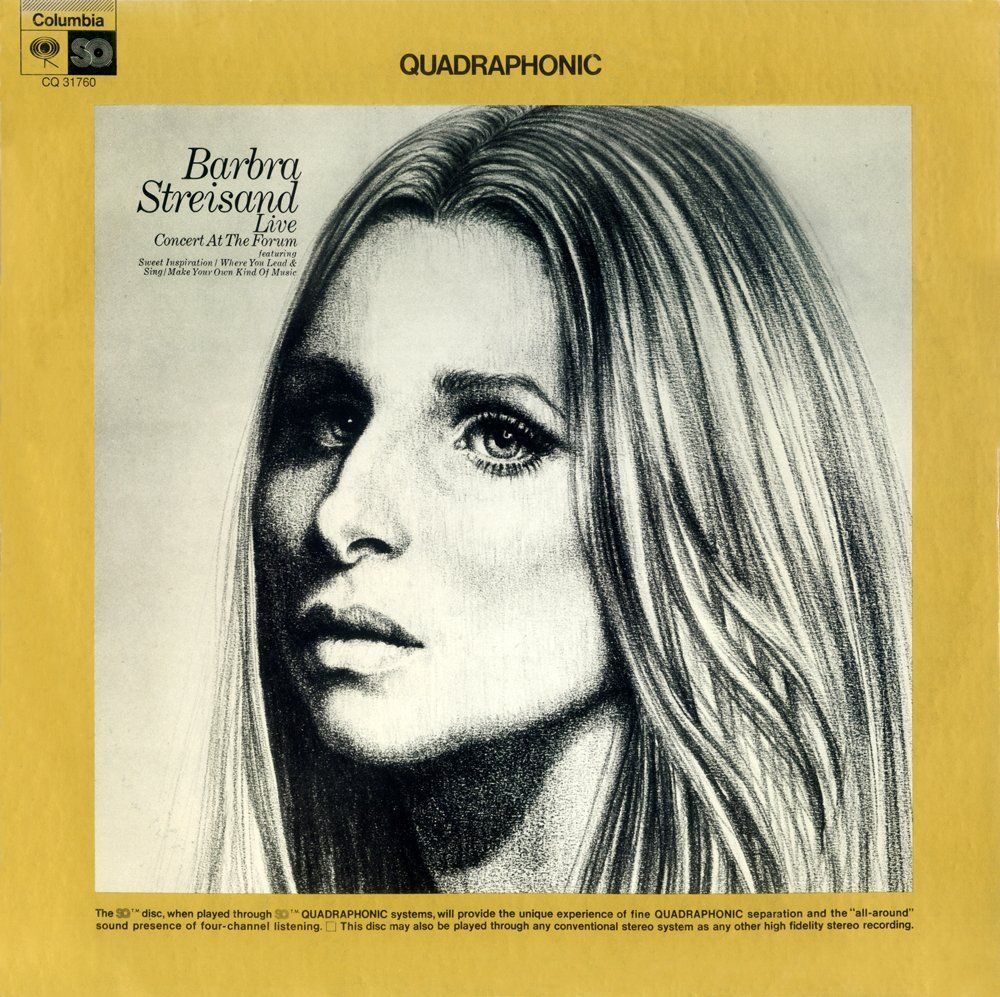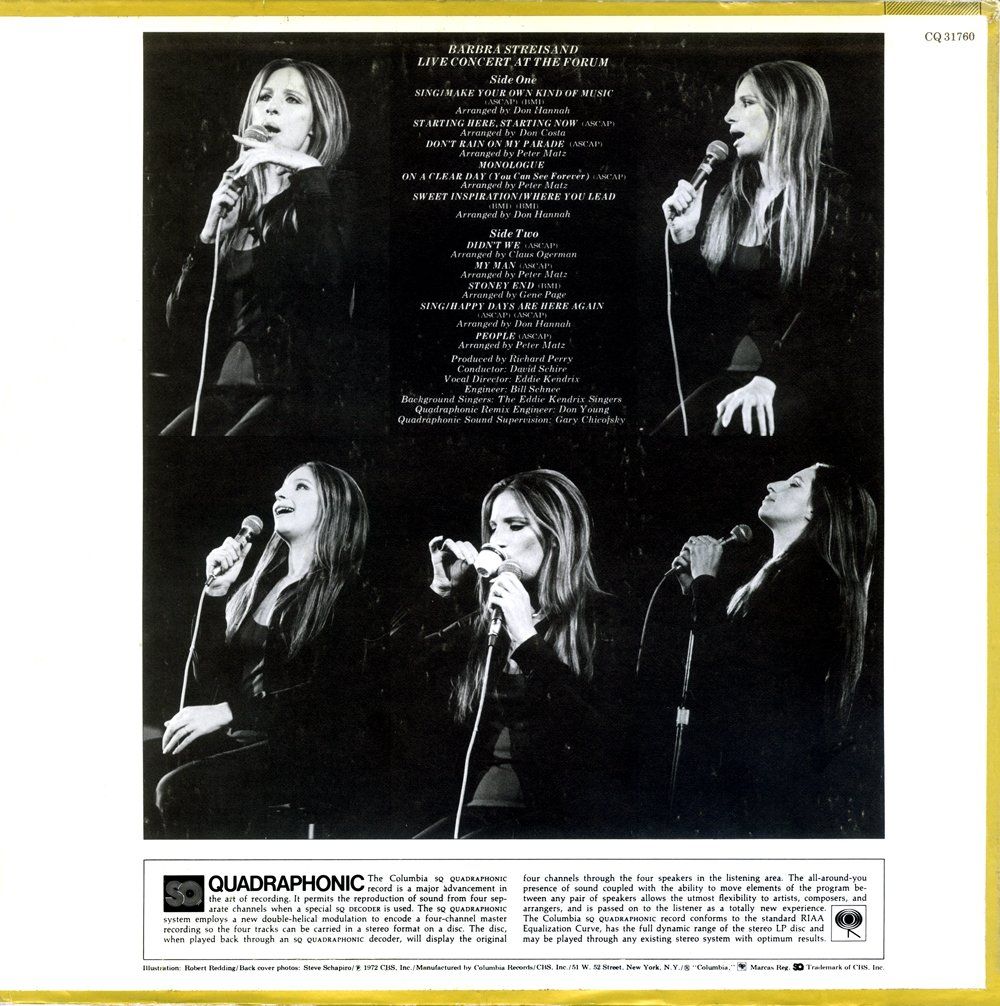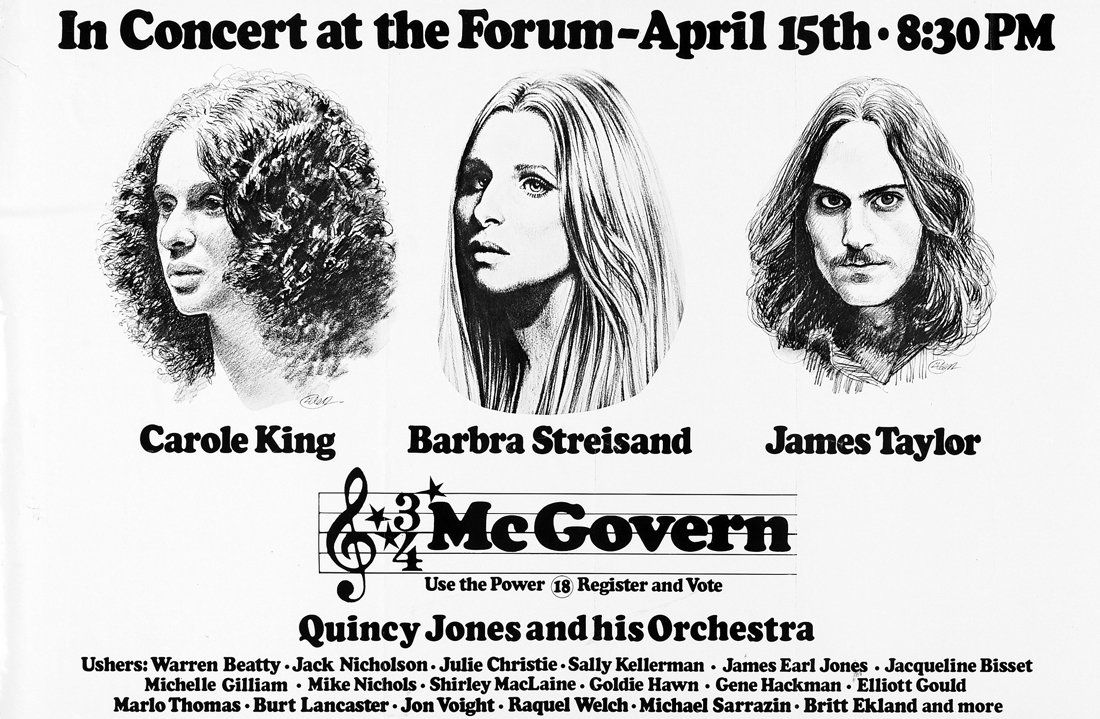PHOTO: A full-length poster of Robert Redding's album artwork was included in the original LP packaging. A sticker on the front of the album declared: “A beautiful poster of Barbra Included.”
Mort Goode's liner notes for this album have been included below, and are the best summary of the audio from this concert:
It was April 15th. Springtime, 1972. A presidential election year. 18,000 citizens had gathered at the Forum in Los Angeles to make a personal statement, to join in and contribute to the first of a special series of fundraisers for Senator George McGovern’s campaign, to hear “the most glamorous pop concert in recent Hollywood history.”
A movement had gathered. Young people and the not-so-young. Common people and the out-of-the-ordinary. Involved people and the deeply-involved. There were $5.50 seats. And $100.00 ones. And such ushers as Warren Beatty, Sally Kellerman, Jack Nicholson, Julie Christie, James Earl Jones, Michelle Gilliam, Goldie Hawn, Gene Hackman, Burt Lancaster, Jon Voight, Cass Elliot, Carly Simon, Peggy Lipton, Robert Vaughn, Bob Reiner, John Philip Law and Britt Eklund. The receipts added up to more than $300,000. It was a beginning.
They had put a title on the evening: “Four for McGovern.” Carole King and James Taylor shared the spotlight and the first half of the evening’s program. Solos. Duets. Playing. Singing. Raising pleasures. Ovations. Quincy Jones and a 31-piece orchestra with Clydie King and Her Sweet Things had finished their turn. More cheers.
And now—Barbra Streisand was being introduced to close the show. Barbra—in person. In concert. Live at the Forum. Ben Fong-Torres wrote about it in Rolling Stone:
“Barbra Streisand had put the orchestra, the sound crew, and stagehands through a grueling four-hour rehearsal that day. Now, she was on stage, in a black velvet pantsuit and a red tank-top shirt for her first concert in six years. [Ed. Note: One very slight correction about the outfit—the pantsuit was black satin.] She gave everybody everything: a lullaby from Sesame Street into her jolting rock-rolled voice for ‘Make Your Own Kind Of Music,’ arms out and fluttering like a loony bird’s wings.”
There is more here than Barbra’s individual way with songs. A bow to her son for having found a song for her. Small talk. And serious. Humor. And a program that seems to carry a kind of message of hope and conviction. Look at the titles of the songs. Listen to the lyrics and the emphasis. There are more than mere words.
The melody of “Starting Here, Starting Now” was written by David Shire, who conducted this concert for Barbra. The last time he acted as her conductor was during the stage run of Funny Girl at the Winter Garden in New York.
Rolling Stone again: “Nothing—not even her own acute show-and-tells about her greenery—can dim the fact that Streisand is a star and, on this night, the star.”
There were six (6) standing ovations for Barbra that night. She had carried the audience through her variety of joys, up and beyond expectations. She was, as ever, an amazement. One of the myriad reasons was pointed up in Fong-Torres’ comment about “Don’t Rain On My Parade” — “...here’s Barbra holding that [high] note against the ropes while the piano slowly climbs the scale to match it. Then, finally, it is released.”
“Barbra, working next to a little table set with tea, then talked about her nervousness and, funny girl, lit up a joint. ‘It’s still illegal??? We should face our problems head-on.’ A toke, a revelation: ‘What was that chord you just played?’ (No one had played a thing) and back to work, into a slow, ‘Happy- Days’ styled ‘Sweet Inspiration’ that crashed into Carole’s [King] ‘Where You Lead,’ a four-black back-up choir, all wearing McGovern buttons, joining in to weave back into a churning ‘Sweet Inspiration,’ Barbra leading them in a camp-Motown hand-jive choreography. Tambourines, horns, fast-clapping — the rock crowd was happy.”
The little table was a tea cart. Symbolic? Perhaps. It carried the following elements: a pot of hot tea, cup and saucer, ashtray, a vase with a single red rose, an atomizer, a spoon, cigarette lighter and two other items that can best be described as “souvenirs” of other Streisand performances.
“She slowed things down again, becoming the little girl lost, but inevitably, by her voice, turning from fragile to strong. She did ‘Didn’t We,’ then ‘My Man’ from Funny Girl [film version], then her rock hit ‘Stoney End,’ looking now and again at forgotten lyrics at her feet,” wrote Rolling Stone.
Barbra gave the audience a clear choice between “Second Hand Rose” and “Stoney End.” 18,000 of her fans voted by acclamation. “Both,” they screamed, “both, Barbra.” There wasn’t time. The applause-meter came up for her rock hit. It was a voice vote that raised the roof and the total sense of satisfaction.
Then wrote Fong-Torres, “back to Sesame Street, softly: ‘Sing a song / sing out loud, sing out strong/sing of good things, not bad/sing of happy, not sad . . . make it simple/to last your whole life long . . .”
And segued into “People”—a song Barbra has made more than a theme. It is her statement. At the Forum that evening it was the end statement, and a beginning for all people. Barbra Streisand—Live Concert At The Forum is 45 minutes of pure entertainment, pure Barbra. More than half her program has never before been recorded — the medley of “Sing/ Make Your Own Kind Of Music”; the “Monologue”; the medley of “Sweet Inspiration/ Where You Lead”; and “Didn’t We.” It is the fourth version of “Happy Days Are Here Again,” though the first time with the “Sing” lead-in. We haven’t counted up the numbers of “People.”
The people at the Forum that April evening counted up to 18,000—cheering, hoping, sharing. They wanted to be heard. They were standing up to be counted. A movement was gathering. The Forum seemed aptly named and the right place. In Roman days, a forum was an assembly empowered to hear and decide causes.
It was an evening of purpose and entertainment. The people had come out that night. The stars of the entertainment world had come out that night. On that night of entertainment “the star” was Barbra.
— Mort Goode

